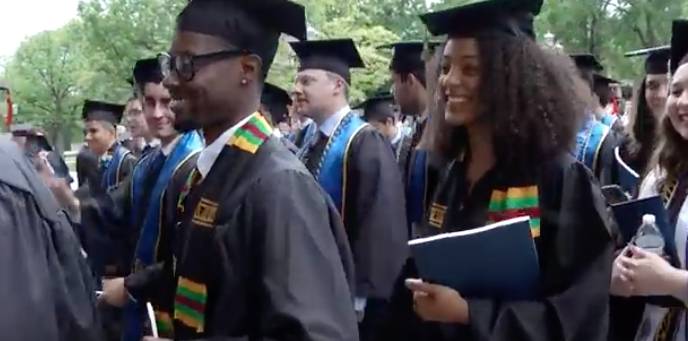Study Claims Economic Benefits for a Liberal Arts Degree

There has been much discussion about whether getting a college degree is worth it in today’s economic environment, in which the American economy is booming, though some economic experts claim an economic slowdown is coming within the next couple of years. But, the Andrew W. Mellon Foundation commissioned a research report on whether there are benefits for college students to obtain a liberal arts education, instead of obtaining a four-year college degree from a public or private university.
Conservatives often claim that college degrees, but specifically liberal arts degrees, are no longer as valuable as before, as many colleges subject their students to take classes unrelated to the real world, such as gender studies, women’s studies, and similar subjects and fields. Liberals defend colleges, which are often aligned politically with liberals, as bastions of free speech, freedom of expression, and tolerance. The Mellon Foundation’s research report attempted to bridge the divide between the two divergent schools of thought on the value of a liberal arts degree.
But, the report was inconclusive, despite the claims of the researchers that a liberal arts education means financial stability. The researchers claimed that “evidence suggests that there are positive economic returns on average” for college graduates and said that “expected higher lifetime earnings offset the costs of net tuition and opportunity costs of foregone earnings while in school.” They did note that their results varied between public and private colleges. Yet, the transparency of data is debatable, and the report’s conclusion is far from accurate.
The research was a summary of other findings of prior research, which means that the data presented in the research were in terms of percentages but lacked easily-digestible data points such as income or salary per year and tuition costs. In other words, the research report from the Mellon Foundation requires the reader to trust in previous research and their data and to be well-versed in research data. Instead of providing easy-to-read data points such as a liberal arts graduate’s income after graduation, the report only cited percentiles and similarly academic data points for readers to digest and interpret for themselves, as if the report was only meant for academics to disseminate.
The report admitted that liberal arts graduates do not out-earn engineers, for example, but beyond that, blamed liberal arts graduates for choosing low-paying careers for bringing the stereotype to life.
Also, one of the researchers was Catharine Hill, who used to be the president of Vassar College, a small liberal arts college. It is tough to trust this report about liberal arts colleges when one of the researchers used to run a liberal arts college, calling into question Hill’s impartiality and potential bias.




